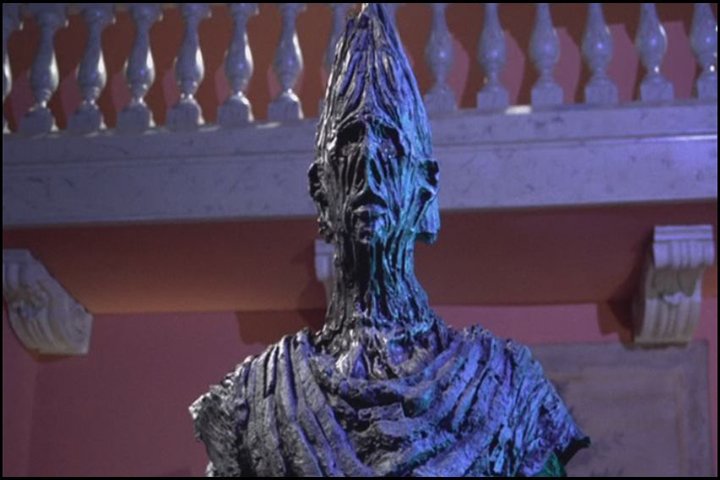Worf
I'll Lock Up
- Messages
- 5,248
- Location
- Troy, New York, USA
Excellent review, couldn't and DIDN'T do better myself. Can't remember ever beating you to the punch on a great, obscure film. I'd never heard of it before and got "sucked in". That shows you how compelling this little melodrama is. I hope more folks see it. Thanks for confirming my view of the films worth.⇧ What an excellent review by Worf. Love the line, "...keep his head on a swivel."
I saw the movie So Ends Our Night a couple of days ago (I DVR'd it from a recent TCM showing) and was about to post these ⇩ comments, but if you only want to read one review of the movie, I recommend reading Worf's above.
View attachment 458770
So Ends Our Night from 1941 with Fredric March, Glenn Ford and Margaret Sullavan
Casablanca famously opens with the description of a trail of haggard and desperate refugees fleeing Europe owing to the Nazi conquest of the continent. But before the Nazi had taken over almost all of Europe, refugees were fleeing Germany, and other countries it subsequently invaded, in a frantic attempt to remain free of Nazi subjugation.
So Ends Our Night looks at these refugees who, as persons without a state, had no legal right or way to live anywhere. For 1941, before all the horrors of WWII where fully known and for a Hollywood that had been timid throughout the 1930s to hurt its business in Germany, it's one of the few hard-hitting anti-Nazi movies that was made before the US entered WWII.
Fredric March plays a German who, as a member of the resistance, escapes a concentration camp and flees Germany paperless (no passport, visa, etc.). He is, effectively, forced to leave his sickly wife behind. A Gestapo officer, played by Erich von Stroheim, offers March a passport if he'll name fellow resistance members' names, but March refuses.
Now illegally in Austria before it was conquered by Germany, March meets a young refugee, played by Glenn Ford, who fled Germany because he is half Jewish. After being chased out of Austria by the authorities - they have no legal right to be there - Ford and March, now illegally in Prague, meet another refugee played by Margaret Sullavan.
Sullivan had to leave her middle-class life in Germany behind because she is Jewish. Ford and Sullavan, both young, are attracted to each other, but their relationship takes time to develop as the demands of survival trump romance for these desperate kids.
From here, So Ends Our Night documents all the small and big travails and challenges experienced by March, Ford, Sullivan and other refugees trying to survive - trying to earn a living for food and shelter - in states where their very existence is illegal.
With no passports or visas, they can't get jobs in the open and, of course, the market for illegal labor is flooded with refugees. They also have to maintain a constant vigilance for the police who would arrest them, which would lead to deportation after time spent in jail.
Along the way, they meet some kind people who help them, but also, many people who cheat or expose them. They move from one rooming house or barn to another and from one country to another in a fruitless search for a place to live something that approaches a normal life.
As refugees, instead, every day is lived in constant fear, yet, and this is amazing, they manage to keep much of their humanity. We see them sharing their small amount of food with someone who has none or singing along to an upbeat song because there is still some hope inside them.
March is a survivor who finds ways to make money, which, as the self-appointed surrogate parent to Ford and Sullivan, he kindly shares. Being (one assumes) written and filmed before France was conquered, France is seen as a possible sanctuary by these refugees, but we sadly know how that will end.
It will end as represented in the famous refugee trail seen in the opening of Casablanca. This makes So Ends Our Night, effectively, a precursor movie that explains the origins of that famous movie's harrowing trail of humans.
Owing to its small budget and being an independent production, So Ends Our Night lacks the professional and polished production quality of a major studio offering, but stars March, Ford and Sullivan deliver passionate performances that personalize the plight of the refugees.
With von Stroheim very effectively representing Nazi evil, So Ends Our Night is a solid and early entry in what would become a long and, sadly, very necessary line of movies documenting and exposing Nazi atrocities.
Worf
Last edited:



